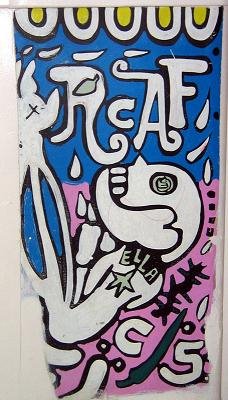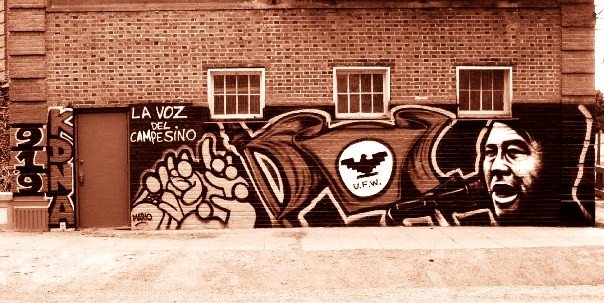Justice Department to investigate Seattle Police civil-rights practices
The U.S. Department of Justice has decided to investigate the Seattle Police Department to determine whether its officers have engaged in a pattern of unnecessary force, particularly against minorities.
Seattle Times staff reporter
Seattle Police Chief John Diaz said he welcomes the Department of Justice's announcement Thursday that it will investigate whether his officers have engaged in a pattern of unnecessary force and biased policing.
The department has fully cooperated with the inquiry so far, Diaz said, and will continue to do so.
"We have nothing to hide," he said. "We've been open and transparent with the Department of Justice, which makes for a good working relationship."
Diaz, attending a previously scheduled appearance with The Seattle Times editorial board, said he had received a call from the DOJ hours earlier alerting him to the decision. He said he had expected the investigation, which he likened to a "free audit from the Department of Justice."
The DOJ also confirmed Thursday it is conducting a separate criminal investigation into the August shooting death of First Nations woodcarver John T. Williams by a Seattle police officer. The officer, Ian Birk, resigned from the force after prosecutors said they could not build a case against him. (See accompanying story.)
Assistant U.S. Attorney General Thomas Perez, who oversees the DOJ's Civil Rights Division in Washington, D.C., announced the departmentwide "patterns and practices" investigation in a conference call with U.S. Attorney Jenny Durkan, whose office's civil division will oversee it.
Both Perez and Durkan stressed that the investigation is civil — not criminal — in nature. Its goal, Perez said, is to determine whether there are "systemic violations of the Constitution or federal law by officers of the SPD" and to correct them if they're found.
Should problems be found, the Justice Department will work with the department to fix them, Perez said.
Legal action
If it meets resistance, however, it could sue the department in federal court to force the changes.
The downtown King County Jail underwent a similar investigation in 2007 and was required by the DOJ to make significant changes in its care of inmates under threat of a lawsuit.
"Our goal with this investigation ... is simple: to ensure that the community has an effective, accountable police department that controls crimes, ensures respect for the Constitution and earns the trust of the public it is charged with protecting," Perez said.
That trust has been shaken, Diaz acknowledged, by publicized incidents involving violent arrests or confrontations by Seattle officers. Several of those incidents were cited in a December letter calling for a federal investigation. The American Civil Liberties Union of Washington sent the letter, which was signed by 34 community groups.
The letter outlined several disturbing incidents, including one last year where an officer used a racial slur and threatened to beat a robbery suspect, and the shooting of Williams, which the department's Firearms Review Board found was unjustified.
Two other officers are under state criminal investigation for incidents involving use of force.
Other cities
The Justice Department has looked at similar issues involving state and local law-enforcement agencies in New York, New Orleans, Ohio, New Jersey, Pennsylvania, California and the District of Columbia.
It has been conducting a preliminary review of the department for several months — even before the December letter.
Durkan said no single incident triggered the inquiry, and neither she nor Perez would go into details about the circumstances or incidents that led to conclude that a full-blown investigation was warranted. Durkan promised a "comprehensive investigation regarding the use of force" or discriminatory policing by Seattle officers.
"We do not prejudge our investigations," Perez said. If violations are found to have occurred, "we will work with the city and police department to develop a plan to remedy them."
The investigation will involve reviews of the department's policies and practices, records and observation of officers in the field. The office will also reach out to community groups and set up a hotline for citizen comments and tips.
Perez and Durkan said the department, the city and the police officers' guild have been cooperative.
"That gives us some real optimism that we can complete the investigation phase in a productive way and get at the truth, wherever it leads us, and get at solutions," Perez said.
The ACLU praised the announcement.
"With its expertise and experience, the Department of Justice should be able to provide some useful recommendations for curtailing the troubling uses of force we've seen," said ACLU of Washington Executive Director Kathleen Taylor.
"We appreciate that city of Seattle and police leaders have taken a cooperative attitude toward the DOJ and expect something good to come from its involvement with Seattle."
Mayor Mike McGinn, through a spokesman, promised to "continue our practice of working openly with the Department of Justice on addressing the issues that they are investigating. They have our full cooperation."
Sgt. Rich O'Neill, president of the Seattle Police Officers' Guild, said he's confident the investigation will not turn up any systemic problems with force or biased policing in the SPD.
"In a way, I'm looking forward to this," O'Neill said. "There's no doubt in my mind they will not uncover any systemic problems.
"They may come up with suggestions in ways we could do better in both areas. Great," O'Neill said.
Durkan has been involved in use-of-force issues with the Police Department for nearly a decade, including a stint as the nonvoting civilian member of the Firearms Review Board.
She was a member of two task forces that have examined the department and its discipline issues and resulted in the creation of the civilian-run Office of Professional Accountability.
She said she will remain "actively engaged" in the investigation.
The request by the ACLU and community groups came after highly publicized incidents in which officers have resorted to force, often against people of color. In their request, the ACLU and other organizations asserted that some Seattle officers appear to "inflict injury out of anger" at suspects rather than to protect public safety.
"Distrust of the police by communities of color grows as a result, and it becomes harder for the Seattle Police Department to do its job of keeping all Seattle residents safe," said the letter, which was sent to Durkan and Perez.
In addition to the Williams shooting, the confrontations include an officer kicking and threatening to beat the "Mexican piss" out of a prone Latino man in April; the repeated kicking of an African-American teen during an arrest inside a convenience store in October; and the pummeling of an African-American man in a police lobby in June 2009, in which officers were cleared of wrongdoing.
Seattle Times staff reporters Jack Broom and Susan Gilmore contributed to this report.
Mike Carter: 206-464-3706 or mcarter@seattletimes.com.





.jpg)
.jpg)






.jpg)
